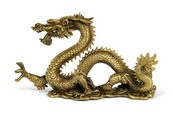Hutong CultureBeijing is associated with the hutongs. They
are an important part of the culture and
way of life of Beijingers, especially the
older generation.
Walking through the hutongs, it is common
to see groups of elderly citizens sitting
together playing cards, mahjong or Chinese
chess. In the early mornings and evenings,
they gather to practice traditional forms
of exercise such as taijiquan as well as
to dance and sing folk songs or Peking Opera
arias. Also important to hutong life is the
traditional foods being sold in carts or
small stalls. These change according to the
season, from flavoured ice in the summer
to long kebabs of crab apples covered in
sugar in the autumn and winter.








